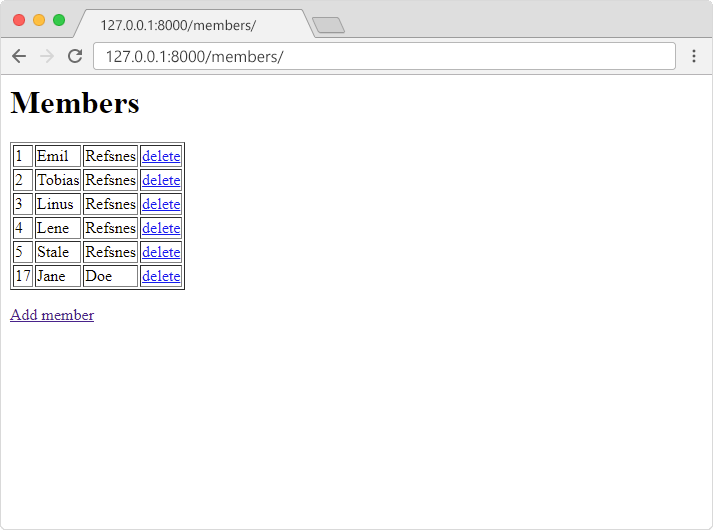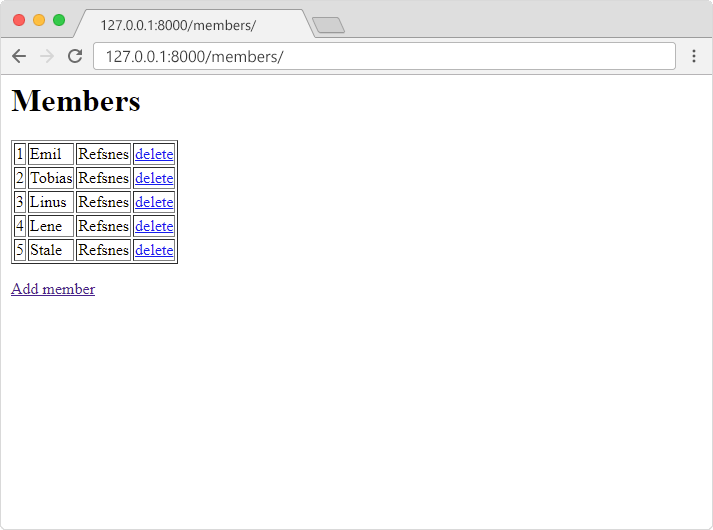Django Delete Record
Deleting Records
To delete a record we do not need a new template, but we need to make some changes to the members template.
Of course, you can chose how you want to add a delete button, but in this example, we will add a "delete" link for each record in a new table column.
The "delete" link will also contain the ID of each record.
Modify Template
Add a "delete" column in the members template:
members/templates/index.html:
<h1>Members</h1>
<table border="1">
{% for x in mymembers %}
<tr>
<td>{{ x.id }}</td>
<td>{{ x.firstname }}</td>
<td>{{ x.lastname }}</td>
<td><a href="delete/{{ x.id }}">delete</a></td>
</tr>
{% endfor %}
</table>
<p>
<a href="add/">Add member</a>
</p>The result will look like this:

URLs
The "delete" link in the HTML table points to 127.0.0.1:8000/members/delete/
so we will add a path() function in the members/urls.py file, that points the url
to the right location, with the ID as a parameter:
members/urls.py:
from django.urls import path
from . import views
urlpatterns = [
path('', views.index, name='index'),
path('add/', views.add, name='add'),
path('add/addrecord/', views.addrecord, name='addrecord'),
path('delete/<int:id>', views.delete, name='delete'),
]Code for Deleting Records
Now we need to add a new view called delete in the
members/views.py file:
members/views.py:
from django.http import HttpResponse, HttpResponseRedirect
from django.template import loader
from django.urls import reverse
from .models import Members
def index(request):
mymembers = Members.objects.all().values()
template = loader.get_template('index.html')
context = {
'mymembers': mymembers,
}
return HttpResponse(template.render(context, request))
def add(request):
template = loader.get_template('add.html')
return HttpResponse(template.render({}, request))
def addrecord(request):
x = request.POST['first']
y = request.POST['last']
member = Members(firstname=x, lastname=y)
member.save()
return HttpResponseRedirect(reverse('index'))
def delete(request, id):
member = Members.objects.get(id=id)
member.delete()
return HttpResponseRedirect(reverse('index'))The delete view does the following:
- Gets the
idas an argument. - Uses the
idto locate the correct record in the Members table. - Deletes that record.
- Redirects the user back to the
indexview.
Click on the "delete" link for Jane Doe, and see the result:



